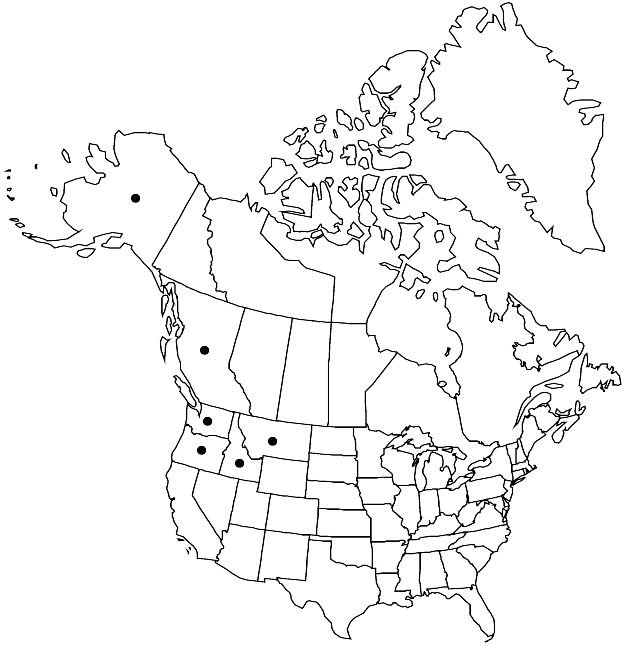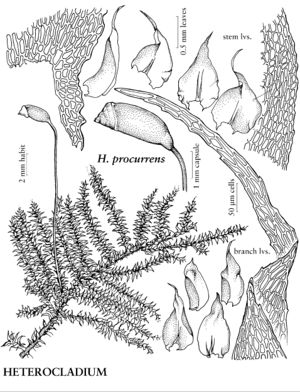Difference between revisions of "Heterocladium procurrens"
Ber. Thätigk. St. Gallischen Naturwiss. Ges. 1876–1877: 246. 1878.
FNA>Volume Importer |
GeoffLevin (talk | contribs) m (Fixed typo in basionym) |
||
| (3 intermediate revisions by 2 users not shown) | |||
| Line 15: | Line 15: | ||
}} | }} | ||
|basionyms={{Treatment/ID/Basionym | |basionyms={{Treatment/ID/Basionym | ||
| − | |name=Pterogonium | + | |name=Pterogonium procurrens |
|authority=Mitten | |authority=Mitten | ||
|rank=species | |rank=species | ||
| Line 48: | Line 48: | ||
|parent rank=genus | |parent rank=genus | ||
|synonyms= | |synonyms= | ||
| − | |basionyms=Pterogonium | + | |basionyms=Pterogonium procurrens |
|family=Pterigynandraceae | |family=Pterigynandraceae | ||
|habitat=Rock, soil, humus, rotting wood, base of trees | |habitat=Rock, soil, humus, rotting wood, base of trees | ||
| Line 57: | Line 57: | ||
|publication year=1878 | |publication year=1878 | ||
|special status=Endemic;Illustrated | |special status=Endemic;Illustrated | ||
| − | |source xml=https:// | + | |source xml=https://bitbucket.org/aafc-mbb/fna-data-curation/src/2e0870ddd59836b60bcf96646a41e87ea5a5943a/coarse_grained_fna_xml/V28/V28_579.xml |
|genus=Heterocladium | |genus=Heterocladium | ||
|species=Heterocladium procurrens | |species=Heterocladium procurrens | ||
Latest revision as of 19:34, 14 December 2022
Stems with epidermal cells smooth. Leaves squarrose-spreading when dry or moist; stem leaves 1–2 mm; margins serrulate; apex acuminate; costa double to mid leaf; laminal cells smooth.
Habitat: Rock, soil, humus, rotting wood, base of trees
Elevation: low to moderate elevations
Distribution

B.C., Alaska, Idaho, Mont., Oreg., Wash.
Discussion
Plants of Heterocladium procurrens appear much larger than those of the other two species in the flora due to their somewhat more regular branching and strongly spreading leaves, even when dry; the strongly spreading leaves and smooth laminal cells are distinguishing traits. Specimens of H. procurrens also frequently have a yellow-green or red-green coloration and shiny appearance while the other two species are generally dark green and dull in appearance.
Selected References
None.
